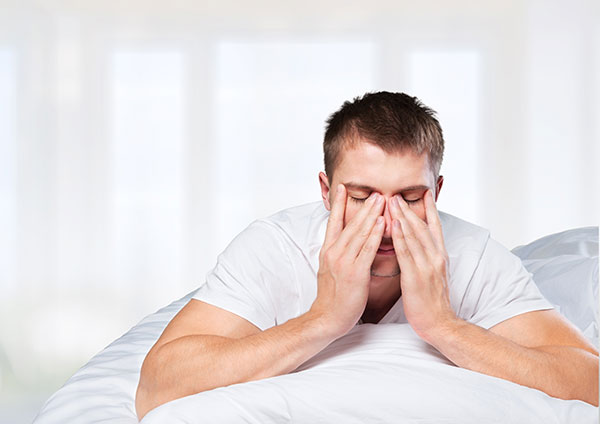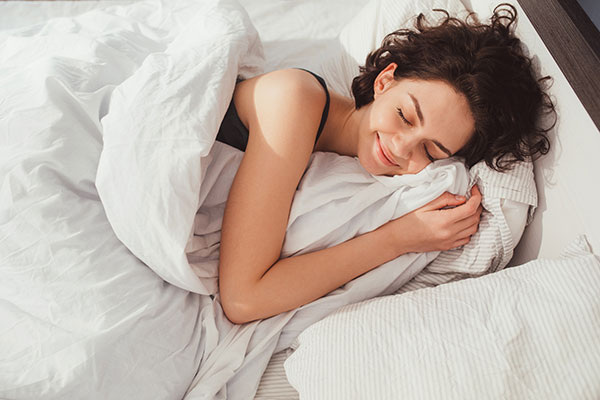How Lifestyle Changes Can Help Ease Sleep Apnea Symptoms
Disrupted sleep and fatigue are constant companions. Though CPAP machines are a common treatment, their noisiness and cumbersome face masks are unpopular. Fortunately, in some cases of sleep apnea, certain lifestyle changes can ease your symptoms.
To learn more about sleep apnea treatment in Sacramento, contact our dental office by calling (916) 929-9222 to get started!

What Is Sleep Apnea?
Sleep apnea is a disorder characterized by interruptions in breathing during sleep. These interruptions, known as apneas, can occur multiple times throughout the night and lead to poor sleep quality, daytime fatigue, and other health issues.
The Importance of Seeking Treatment
Untreated sleep apnea can have serious consequences on your health and lifestyle. From increased risk of cardiovascular diseases to impaired cognitive function, the effects of sleep apnea can be far-reaching. However, effective treatment can significantly improve your sleep quality, boost your energy levels, and enhance your overall well-being.
Lifestyle Changes
Weight Management
One of the most important lifestyle changes for individuals with sleep apnea is weight management. Obesity is a significant risk factor for sleep apnea, as excess fat around the neck can obstruct the airway during sleep. Losing weight through a combination of healthy eating and regular exercise can reduce the severity of sleep apnea and, in some cases, eliminate it.
Diet Modifications
A balanced and healthy diet can improve sleep apnea symptoms. Reducing the consumption of high-fat, high-sugar, and processed foods can help with weight loss and decrease inflammation, which can contribute to sleep apnea. Additionally, avoiding large meals, caffeine, and alcohol close to bedtime can improve the quality of sleep.
Regular Exercise
Regular physical activity not only aids in weight management but also strengthens the muscles in the throat and helps prevent airway collapse during sleep. Engaging in activities like brisk walking, swimming, or yoga can be beneficial for individuals with sleep apnea. However, it’s important to exercise earlier in the day rather than right before bedtime to avoid disrupting sleep.
Sleep Position
Believe it or not, your sleep position can impact the severity of sleep apnea. Sleeping on your back can cause the tongue and soft palate to collapse to the back of the throat, obstructing airflow. Consider sleeping on your side to help keep the airway open. Our sleep dentist often recommends using pillows and positional devices to encourage side sleeping.
Avoid Alcohol and Sedatives
Alcohol and sedative medications can relax the muscles in the throat, making sleep apnea symptoms worse. Reducing or eliminating the consumption of these substances can lead to better sleep quality and reduced instances of apnea.
Quit Smoking
Smoking is associated with increased inflammation and fluid retention in the upper airway, both of which can worsen sleep apnea. Quitting smoking can lead to significant improvements in sleep quality and overall health.
Develop a Consistent Sleep Schedule
Establishing a regular sleep schedule can help regulate the body’s internal clock and improve the quality of sleep. Going to bed and waking up at the same time each day, even on weekends, can make a significant difference for individuals with sleep apnea.
Benefits of Lifestyle Changes for Sleep Apnea
Patients may experience the following benefits:
- Improved Sleep Quality: Lifestyle changes can lead to deeper, more restful sleep, reducing nighttime awakenings and improving overall sleep quality.
- Enhanced Daytime Alertness: Better sleep means improved daytime alertness, concentration, and productivity.
- Reduced Risk of Health Complications: Lifestyle changes can lower the risk of associated health problems, such as cardiovascular diseases, high blood pressure, and diabetes.
- Weight Loss: Weight management can lead to a reduction in body fat, particularly around the neck, which is a common contributor to sleep apnea.
- Decreased Dependence on Medications: Lifestyle changes may reduce the need for medications or medical devices to manage sleep apnea symptoms.
- Enhanced Mood: Improved sleep can lead to better emotional well-being, reduced irritability, and decreased symptoms of depression and anxiety.
- Better Quality of Life: By addressing sleep apnea through lifestyle changes, individuals can enjoy an overall better quality of life, with more energy and vitality.
If you’re looking for a custom treatment plan for sleep apnea, contact our dental office in Sacramento today by calling (916) 929-9222.
Frequently Asked Questions
Can sleep apnea affect my daily productivity?
Yes, as sleep apnea can lead to daytime drowsiness, difficulty concentrating, and irritability. Untreated sleep apnea can hinder your ability to make the most of your day.
Is snoring always a sign of sleep apnea?
Not necessarily, but it can be a symptom. While not everyone who snores has sleep apnea, loud and persistent snoring is often indicative of an airway obstruction. If you or your partner are experiencing snoring along with other symptoms like daytime fatigue, it’s advisable to consult a professional for a comprehensive evaluation.
Discover a Path to Better Rest
Sleepless nights leaving you exhausted? You don’t have to suffer from sleep apnea anymore. Take control of your health and start getting the restful sleep you deserve. Experience the difference restful sleep can make in your energy, focus, and quality of life.
Don’t put it off another day -— call our Sacramento dental office at (916) 929-9222 now to schedule your consultation.

